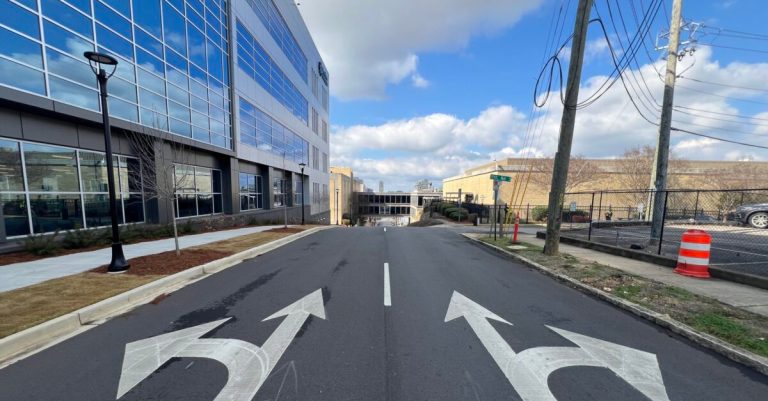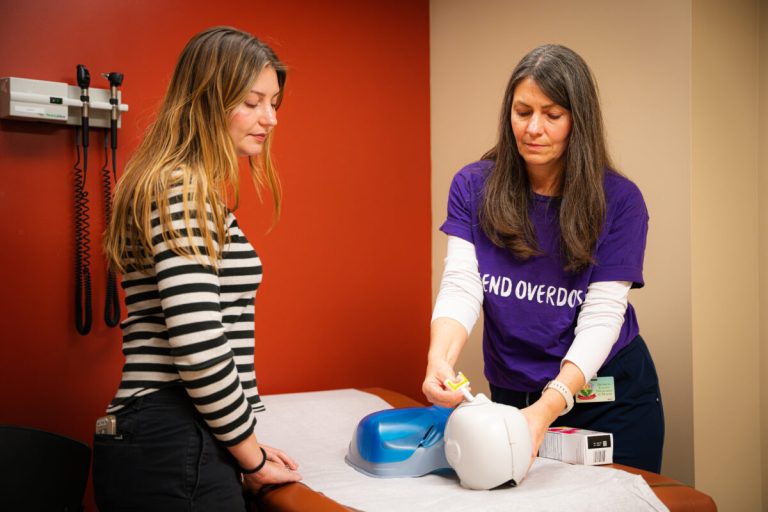Reviewed by: Cindy Hatcher
200+ people in Fairfield have better access to food thanks to new food pantries
Reading time: 4 minutes
Sponsored

Nearly 20% of children across Alabama face uncertainty about their next meal, according to United Way of Central Alabama (UWCA).
There are countless people—some organizations that work with UWCA, some individuals who just want to help—working to eliminate hunger and food insecurity.
One way is through school-based food pantries at two Fairfield City Schools. We learned a little bit more about the process and how it’s helping over 200 individuals in Fairfield access healthy food each month.
Bringing food access to Fairfield students + families
I sat down with Chivon Morse, Director of Placed-based Partnerships at UWCA, to get the rundown on how the school-based food pantries work.
“We hyper-focus on specific communities and leverage UWCA partnerships and resources to support their self-identified needs.
We’ve been working in Fairfield for about two years, and the community-identified nutritious food access as a need for students and their families.”
Chivon Morse, Director of Place-based Partnerships, United Way of Central Alabama
After hearing the community’s needs for healthier and more sustainable food options, UWCA partnered with the Community Food Bank of Central Alabama on two school-based food pantries: C.J. Donald Middle School and Fairfield High Preparatory School.
This is possible through a community schools strategy, inCommunity, which makes human services available on school campuses and increases access for area residents.
See how you can help support food pantries and other UWCA initiatives.
How do the school-based food pantries work?

There are UWCA coordinators at each school who facilitate the transfer of food to people in the community who need it most.
These families are found by either:
- UWCA staff, district social workers + district mental health coordinator identifying families who may need the service
- Families applying for the program themselves
Once families are identified, the Community Food Bank of Central Alabama delivers several thousand pounds of food once a month while school is in session.
Then, UWCA coordinators pack up the food boxes, with recommendations from the Community Food Bank, and deliver them to families discreetly.
“We make sure to honor each family’s dignity and reassure them that we understand their situation is temporary, and that we’re here to support them however we can.”
Chivon Morse, Director of Place-based Partnerships, United Way of Central Alabama
Each month, the school-based food pantry serves about 25 families per location (50 total), which equates to 200 individuals.
Why is this important for Fairfield?

Fairfield was considered a food desert for nearly eight years—from the closure of the Walmart Supercenter in 2016 to the opening of Carver Jones Market in 2024.
With Fairfield residents having few options for affordable and nutritious food, the school-based food pantries offer an easy and comfortable access space for students and their families.
Because schools are socially and geographically-centric to a community, a lot of families and students feel more comfortable accessing resources there than in other places.
The entire heart of UWCA’s mission is to build stronger communities. And yes, they intensely focus on hunger relief, but they also work toward stronger reading levels, mental health help and more.
“We’ve introduced a lot of external partners to work more closely with the school, like mentoring, tutoring and conflict resolution. The community and school leadership identified half a dozen priorities, and we’ve been working to bring in partners.
And not all of them are UWCA-funded—some are just wonderful people in the community who want to help.”
Chivon Morse, Director of Place-based Partnerships, United Way of Central Alabama
The needs of each community look different. Learn more about how you support communities across Central Alabama.
Sponsored by:




